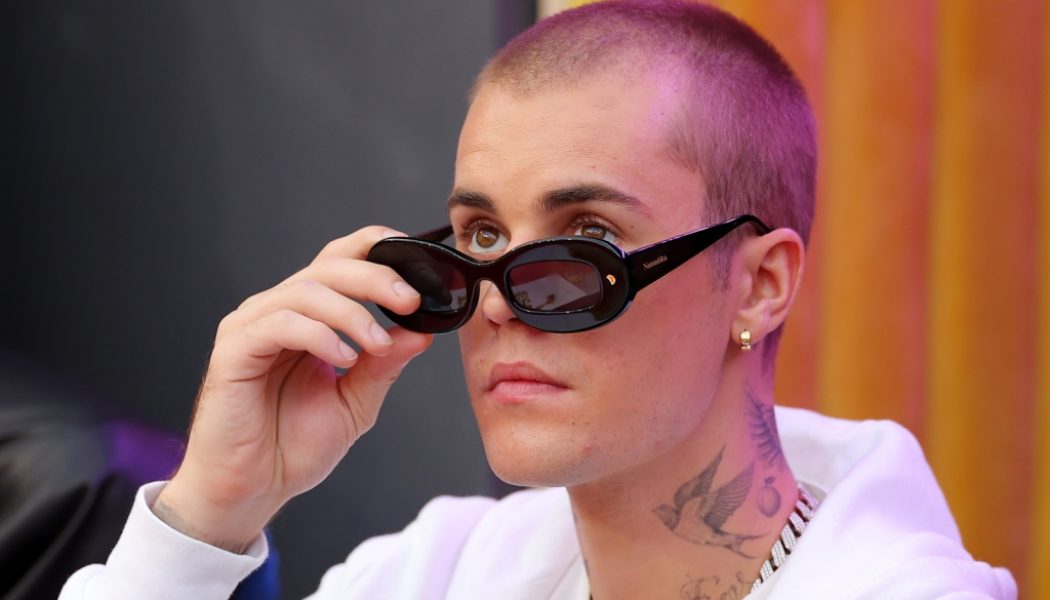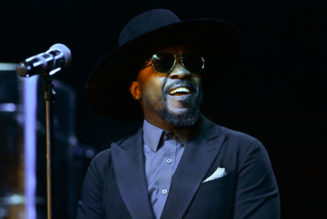
Chris “Tek” O’Ryan, a music producer who specializes in tuning vocals so that they sound pristine on recordings and during performances, filed a lawsuit against Justin Bieber‘s manager Scooter Braun and the company JRC Entertainment on Thursday (April 7), alleging that Braun “reneged” on a deal to pay the producer for his work on Bieber’s tracks.
O’Ryan claims that he was promised a point — 1% of the master recording revenue — on dozens of Bieber songs he helped produce starting in 2018. But in the filing in Los Angeles Superior Court, O’Ryan’s attorneys allege that Bieber’s representatives subsequently backed out of this agreement. As a result, the producer is suing Braun for breach of contract, promissory estoppel and intentional interference with contract.
“Having now been effectively cast aside by the artist he spent more than a decade helping to build up, Tek has no choice but to turn to the courts to ensure that Bieber’s team lives up to the parties’ bargain and properly credits and compensates him after years of loyal service,” O’Ryan’s attorneys write. Representatives for Braun and Bieber did not immediately respond to requests for comment.
O’Ryan got his break working with Chris “Tricky” Stewart, a star writer-producer known for helping to craft modern standards like Beyoncé’s “Single Ladies” and Rihanna’s “Umbrella.” When Stewart co-wrote and co-produced “Baby,” Bieber’s first top 10 hit on the Billboard Hot 100, O’Ryan tuned the vocals, according to the lawsuit.
Millions of listeners have heard this single, but it’s likely that few knew about O’Ryan’s contributions. That’s because vocal tuners “are an under-appreciated class of music producers who operate largely in the shadows of the music industry,” according to the lawsuit. “Many professional musicians are hesitant to openly acknowledge [vocal producers’] contributions for fear of reputational harm (i.e., opening themselves up to accusations that their performances are not completely ‘authentic’ or ‘natural’).”
But O’Ryan’s lawyers argue that vocal producers are “indispensable to modern pop music.” The attorneys write that “the level of attention to detail required for [this] work cannot be overstated, often involving timing and pitch shifts measured in mere fractions of a millisecond or semitone, with individual words split into dozens of manipulable pieces before being expertly reassembled.”
O’Ryan’s suit claims that he helped polish and finesse Bieber’s vocals both in the studio and during live performances for film and TV. O’Ryan charged the singer $1,200 or $1,500 per track until 2018, when he sent an email to Allison Kaye, an executive at Braun’s company SB Projects, asking for a new deal.
“Can we do 2k and a point?” O’Ryan asked. “I feel like I’ve made a great contribution to all these songs that have made so much money for everyone else and at the end of the day I don’t have much to show for it.” Kaye wrote back “that works for us,” according to the legal filing, and in 2019, O’Ryan also entered into a contract that promised him a point on 18 tracks.
But after working on songs for the Justice album, including the hits “Holy,” “Lonely,” and “Anyone,” the producer’s suit claims that O’Ryan was “informed by Bieber’s team that his entitlement to a point on any recordings was considered to be purely within their discretion, and that he could not necessarily expect to receive a royalty on any” of the tracks. Braun later wrote to O’Ryan that “we didn’t know you are on some songs and some songs I have given too many pts to the producers.” “In other words,” the suit reads, “Braun did not deny the terms of the 2018 Agreement, but rather admitted he had already allocated Tek’s rightful point to someone else.”
O’Ryan’s lawyers also argue that the producer is not properly credited on a number of tracks he worked on. By 2017, O’Ryan had worked with Bieber for nearly a decade, but “he was no longer even being reliably given his already ambiguous engineering credit, including on… ‘Despacito,’” the attorneys write. The allegedly “inaccurate depiction” of O’Ryan’s contribution on this track and other more recent songs from Bieber’s Justice album prevented the producer from reaping “significant professional benefits, exposure, and recognition,” according to the lawsuit.
O’Ryan is seeking “monetary damages in an amount to be proven at trial.”
[flexi-common-toolbar] [flexi-form class=”flexi_form_style” title=”Submit to Flexi” name=”my_form” ajax=”true”][flexi-form-tag type=”post_title” class=”fl-input” title=”Title” value=”” required=”true”][flexi-form-tag type=”category” title=”Select category”][flexi-form-tag type=”tag” title=”Insert tag”][flexi-form-tag type=”article” class=”fl-textarea” title=”Description” ][flexi-form-tag type=”file” title=”Select file” required=”true”][flexi-form-tag type=”submit” name=”submit” value=”Submit Now”] [/flexi-form]










Tagged: business, Chris O'Ryan, Contract Law, entertainment blog, Legal, music blog, SB Projects, Scooter Braun